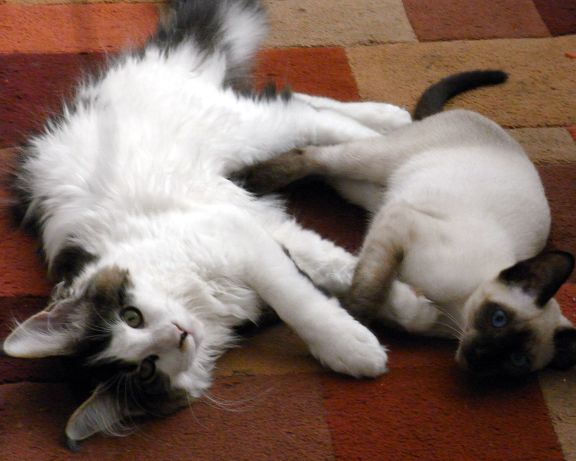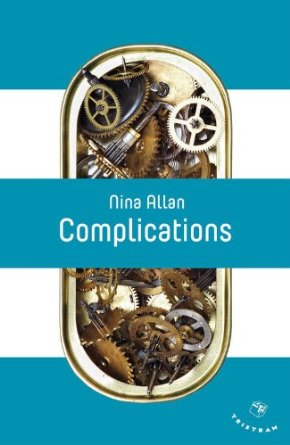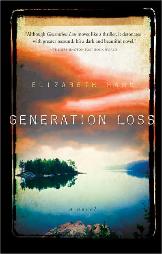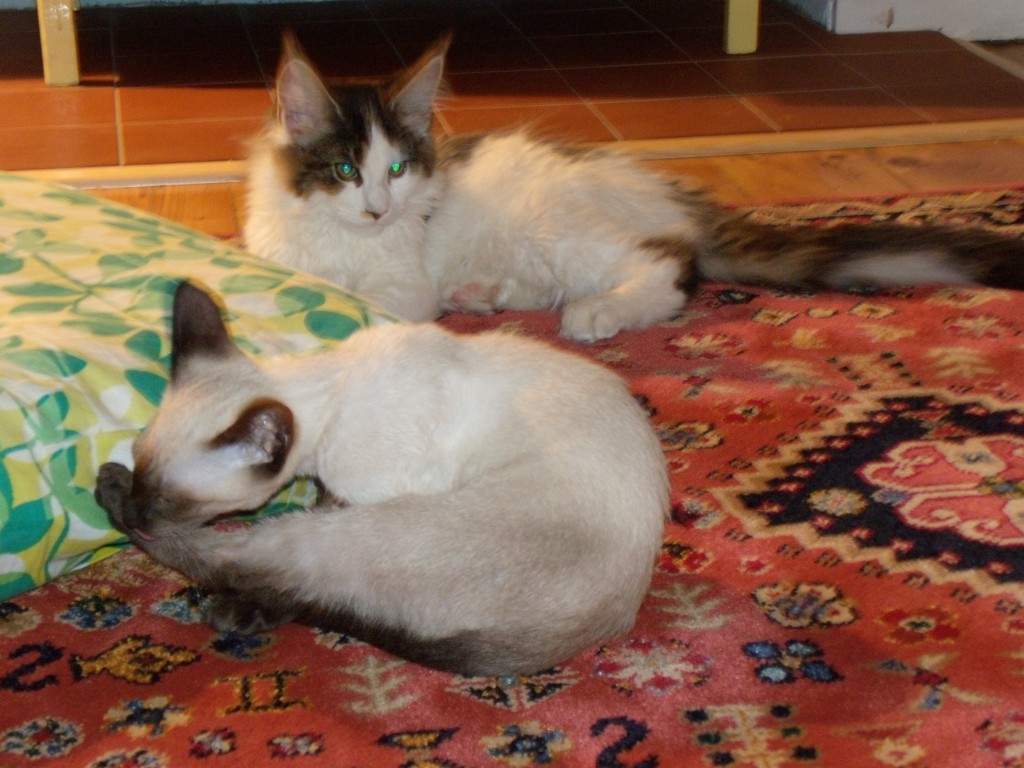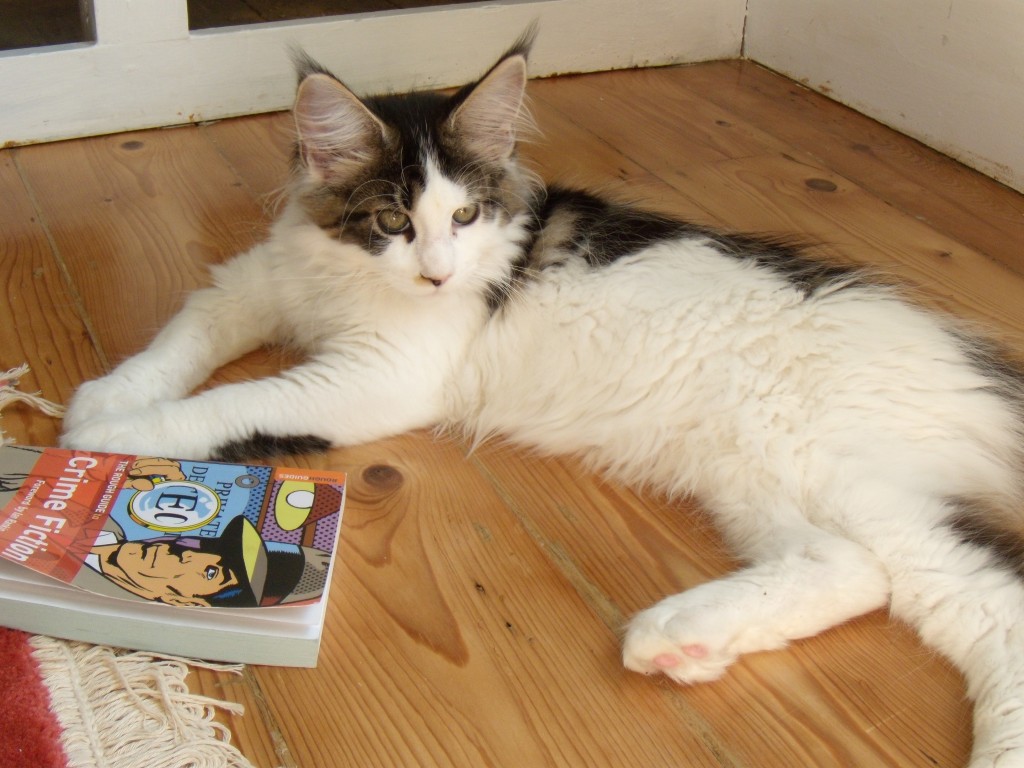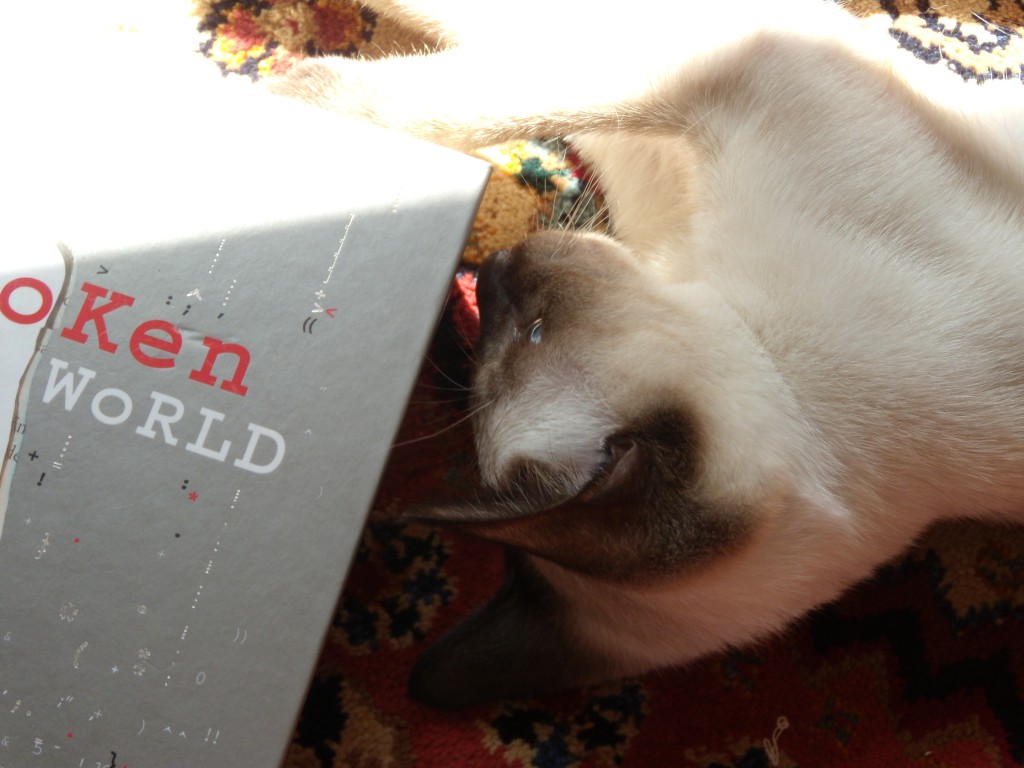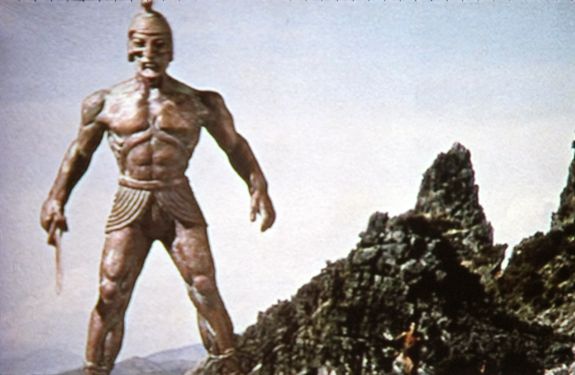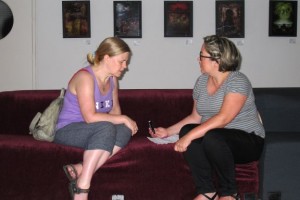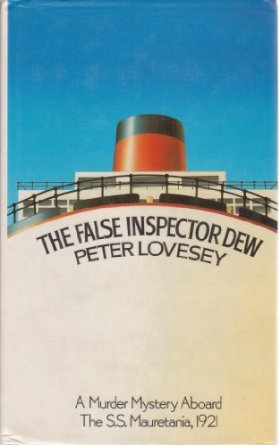I made a momentous and rather sad decision this weekend: I’m giving up on generic horror films, for good.
It’s been some years now since I’ve been able to derive any pleasure from generic horror on the page, but I’ve continued to enjoy it on screen, as a guilty pleasure perhaps, but a pleasure nonetheless. If this weekend’s FrightFest has proved anything to me it’s that I can no longer do so.
Perhaps I’m just too old for this shit now. I don’t know.
I went to five films at FrightFest this year, each as glutinous and lacking in flavour as warm rice pudding. The horror community frequently bemoans the fact that the mainstream cinema audience just ‘doesn’t get’ horror, that they reject horror as a genre on principle, because of the gore, the violence, the disturbing psychologies of the protagonists, and in rejecting it they miss its subversiveness, its social awareness, its time-honoured position in the vanguard of underground cinema. Well, I ain’t buying it. I’ve seen more horror movies than I care to remember, and I can state with some authority that the only terrifying thing about generic horror cinema at the present moment in time is how derivative, burned out and tame it now is. Virtually every Anglo-American film currently being produced and sold as horror is actually cinematic comfort food. Tragically, the European horror film seems to be heading in the same direction.
OK, so let’s get specific. Here’s a brief run-down of the movies I saw at FF this weekend and what I thought was wrong with them:
Dementamania dir. Kit Ryan. Corporate executive Edward Arkham (geddit?) is having a bad day. Recently split from his girffriend Laura, he is finding it increasingly difficult to deal with the frustrating monotony and professional backstabbing that plague his work life. He’s also off his meds. Fortunately, a mysterious stranger named Nicholas Lemarchand (geddit? Geddit?) is on hand to give some sage advice: break free, Edward, exercise your will, you owe these wankers nothing, do what needs to be done…
Everything about this film was a cliche, from the ominous-sounding opening title music to the elevator ride to hell near the end. The script clearly thought it was being original and, God help us, deep. In fact it was so hackneyed and stilted it veered perilously close to the comedic on several occasions. What actually annoyed me most about this movie though was its attitude to women. I’m pretty certain that the team involved in making this film would be surprised to learn that their vision might have caused offence in this respect – and yet how could it not, when the women in this movie are reduced to choosing their roles from among the following: crazy stalker neighbour, duplicitous girlfriend, demon temptress with tentacles, office siren, or Eddie’s little lunchtime lesbian porn fantasy. For one crazy moment I thought the balance was about to be redressed during the by-the-numbers ‘back to reality – or am I?’ sequence towards the end when the medic attending Ed was shown to be female. But no, wait a minute, she’s just a NURSE! No worries though, because she loses no time in calling in a male doctor, along with a psychiatrist, also male. So that’s… just… fine.
I often find myself going overboard to prove how inclusive the horror community really is – but you know what guys, this was pants. Stupid bloody title, too.
Haunter dir Vincenzo Natali. Fifteen-year-old Lisa is also having a bad day. Or should we say, she keeps on having the same bad day. Waking repeatedly to the same routine, the worst aspect of Lisa’s nightmare is that her parents and younger brother don’t seem to realise that anything is wrong. Following her discovery of a mysterious scrapbook, Lisa begins to piece together the drama and horror of what has happened to her, and what she must do next. For although it’s already too late for her, there’s another terrified young girl who desperately needs her help.
I had high hopes for this one as I found plenty to enjoy in Natali’s earlier speculative movies Cube and Cypher. A bemused half an hour in, however, I remembered that the director’s most recent outing was the risibly generic Splice, and those hopes took a nose-dive. Billed as Groundhog Day meets The Others, Haunter has neither the originality, the sharply ironic script or brilliant acting performances of the former, nor the poetry and cinematic beauty of the latter. Rather, it is a tediously disappointing mish-mash of derivative tropes and yet another outing for the increasinly popular Hollywood ‘all ghosts go to heaven’ trope. Here’s a story – just like the Del Toro-produced remake of Don’t Be Afraid of the Dark – that would have benefited enormously from being recast in a more contemporary style. (The original DBAOTD was placed in a more ordinary domestic setting and was all the better for it.) Mists? Mansions? Cellars? Daddy possessed by a serial child murderer? As if all that garbage weren’t enough, the script’s awful. This is ghosts for grannies, a popcorn haunting dressed up to look like The Innocents and failing miserably. One giant yawn for mankind.
Dark Touch dir. Marina de Van. Just when I thought things couldn’t get any more banal, along comes this Orphanage/Orphan/Mama rehash to prove me wrong. Honestly, this film is so embarrassingly bad it’s almost funny. A new and totally superfluous addition to the ‘demon seed’ subgenre, there’s nothing new about it apart from the depths it plumbs in its quest for the title of Possibly the Most Overcooked and Derivative Film You’ll See this Year. Traumatised by a mysterious and violent incident in early childhood, Niamh begins to show all the psychological characteristics of an abuse victim – characteristics that can only become more exaggerated when her parents and young brother die in a bloody massacre at their Irish home. Adopted by ubiquitous do-gooders Nat and Lucas, Niamh continues to insist that there were no murderers, that it was the House that did it (where have we heard that before?) and that the evil is likely to strike again at any time. As indeed it does. Only it’s at this point that the script writer seems to get really confused. Does she mean Niamh to be a protector and rescuer of abused children (cue violent death of Overweight, Abusive, Badly Dressed Village Mother) or a dangerous monster that will, if left unchecked, bring destruction and anarchy upon the whole valley?
Apparently Marina de Van just couldn’t bring herself to make up her mind between these two equally tempting possibilities.
Comparisons have already been made between Dark Touch and Carrie. Again, this is arrant nonsense. Brian de Palma’s film (as Stephen King’s novel before it) is a classic because of its incisive and brutal portrayal of high school bullying. The horror gets lathered on a bit after the bucket-of-pig’s-blood scene, this is true, and the bloody demise of Piper Laurie is just for the kids. But all the same, there is so much about Carrie (a decent screenplay, for a start, alongside marvellous performances by Amy Irving and John Travolta and of course Sissy Spacek herself) that remains resonant and affecting. Dark Touch is just stupid, period.
Banshee Chapter dir. Blair Erickson. Of the five films I saw, this was the only one that contained some discernably interesting ideas, that could actually have been a decent film if it had been imagined better. As it is, every spark of life in this movie is killed off more or less immediately by an unthinking and unnecessary reliance on overused horror tropes.
The film is inspired by the CIA-backed ‘MK-Ultra‘ project of the 50s and 60s, under whose auspices many hundreds of ordinary American civilians were subjected to voluntary and involuntary experiments in mind control, many of them involving dangerous hallucinogens. So far, so genuinely disturbing – similar stuff was going on here in the UK at Porton Down and is probably still going on (Gulf War Syndrome, anyone?) There are a multiplicity of crimes here that need exposing, not to mention a gold mine of conspiracy theories. Erickson’s movie presents us with the story of one James Hirsch, a young writer who decides to take one of the ‘Ultra’ drugs and record what happens. A scrap of surviving film footage shows James swiftly become paranoid and then terrified and then… absent. His college friend Anne, now a journalist for a successful online news outlet, is determined to find out what happened to him. She makes contact with the Burroughs-esque Thomas Blackburn, a counter-culture guru who, it would seem, procured the drug for James in the first place. And that’s where things begin to get silly.
There’s nothing new about Lovecraftian mystery stories, but there’s mileage in the mythos yet. My beef here is not with the concept as such, but with the hash that’s been made of it. Why are directors still pissing about with found footage horror? Blair Witch is fifteen years old now and enough already. And if they do have to use it, why oh why oh why do they have to succumb so readily to its most obvious cliches (jerky, static-infested camerawork, the main action occurring off to the side somewhere and the sequence cut short at the very moment something actually goes down)? Why does everything have to happen in the dark? (You’re in a top secret government bunker, not a garden shed – just turn on the light, for God’s sake.) Why does every film like this have to end up in a basement with someone going ‘no, no!’ and then shooting themselves? (This made me laugh in Chernobyl Diaries because the film makers were clearly revelling in the ridiculousness of it all – Erickson went for Woo this is Serious Shit and I was too annoyed to even raise a smile.)
If the director had taken the trouble to stop and think about his material and what might be made of it, he might have had a decent film on his hands. Instead he just reached for the obvious, the ready-made, the expected, and what we have as a result is another instantly forgettable found footage fiasco with no discernable merit whatsoever. Inaudible dialogue did nothing to salvage the situation, either.
Odd Thomas dir. Stephen Sommers. It’s a point of principle with me never to leave a film before the end, but I have to confess I only made it half way through this. The trains were dodgy because of the Bank Holiday, and I didn’t fancy being late home because of a film that could only ever play out as a cross between a rip-off of Stephen King’s Insomnia and an epiisode of Supernatural. CGI psychopomps. Time, waste of.
I’d love to be able to write these failures off as follies of youth – but you only have to consider the superior talents of Brit Marling, Sofia Coppola (The Virgin Suicides was made when she was not yet thirty) Ben Wheatley and Tom Kingsley (Black Pond was one of my favourite films of 2011) to see that youth is no bar to subtlety, originality or artistic flair. Anyway, many of the FF directors are mature film makers with a sizeable roster of movies to their name. So what’s the problem?
The problem, as I see it, lies not so much with individual directors as with the idea that there is an accepted way of ‘doing’ horror, that horror can be created simply by throwing a bunch of staple ingredients into a mixing pot, that a horror film is not so much a story as a series of effects, designed primarily to manipulate the audience into jumping in their seats when someone shouts boo.
This unthinkingly generic approach is killing horror. Rather than seeking out their own source material, or expanding on themes that properly excite their creativity, new and upcoming directors are turning instead to other horror films as their core inspiration. It’s no wonder that the results feel second hand. It’s difficult to fully appreciate now the impact that Texas Chainsaw and Night of the Living Dead had, on both audiences and other film directors, when they were originally released. But it doesn’t use up a great deal of research time to discover that these movies were made thirty-nine and forty-five years ago respectively.
I for one think it’s time we had some new iconography. It doesn’t take anything away from the classics. In fact it helps us appreciate them more for what they were.
And just as there is innovative and wonderful horror fiction still out there if you care to look for it, there is still exciting and original horror cinema. In the past year alone I have seen films that have delighted me and impressed me and would definitely withstand multiple viewings. Just off the top of my head:
Sightseers, dir. Ben Wheatley. An inimitably British offering, insanely inventive and bizarrely appealing. One of a kind. I loved it.
Stoker, dir. Chan-wook Park. A stunning film visually, intense, visceral, surreal. Amazing use of music. I’m anxious to see it again.
Agnosia, dir. Eugenio Mira. This was amazing – an off-the-wall high gothic drama of mistaken identity, false imprisonment, dastardly goings-on below stairs. I’m not sure it even had a theatrical release in the UK, which is a criminal shame. The cinematography alone makes it a must-see for anyone with a genuine interest in dark fantasy.
The Monk, dir. Dominik Moll. Sounds like it’s going to be just another horror movie, but it really isn’t. It’s weird, and unsettling, and beautiful, with a denouement that is as brilliant as it is unexpected. Bravo.
Byzantium, dir. Neil Jordan. Heartfelt commitment and genuine creative vision, plus a beautiful script, made a mini-masterpiece of this otherwise fairly conventional vampire story. I have such fond memories of seeing this, and look forward to adding the DVD to our collection.
Only God Forgives, dir. Nicolas Winding Refn. I loved Drive, and so was eager to see Refn’s follow-up and in fact I defected from FrightFest for a couple of hours on Friday to do just that. More horrifying than anything the FF programme had to offer, this is a total one-off. It’s terrifyingly tense, amazing to look at, reminded me a little of Gaspar Noe’s Enter the Void, but you can see it all in one go without losing consciousness. Makes Lynchian use of karaoke music. Ryan Gosling is brilliant. Kristin Scott Thomas is worth the price of entry all by herself.
So – the films are out there, but as with the best speculative fiction they tend to lurk in the borderlands. Often they’re not advertised as horror at all – because the concerns they express extend further and wider than can be expressed in a single word. These films are about characters, not effects. They tell stories, and they put the needs of the story before the demands of a label. They have nothing in common with the Hollywood idea of horror, nothing to do with the horror boom of the 1980s, nothing to do with anything but the original and passionate vision of their creators.
This is the kind of horror cinema I want to support, and from now on, as with the books I read, I’m going to make sure that this is where my money goes. I have no further interest in feeding the machine that is commercial horror. Machines are great at producing industrial quantities of identical product. Which kind of says it all really, doesn’t it?
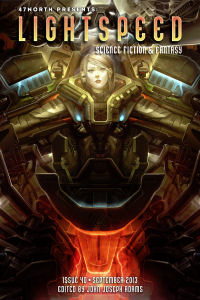 Oh, and for those of you wondering how the kittens are getting on, here’s their latest photo call. Camera flirts.
Oh, and for those of you wondering how the kittens are getting on, here’s their latest photo call. Camera flirts.